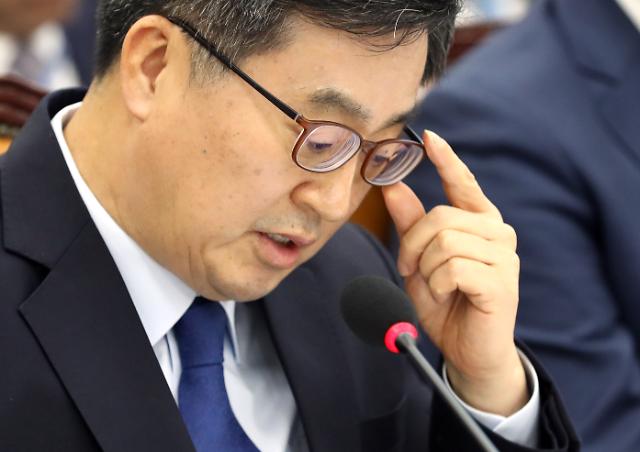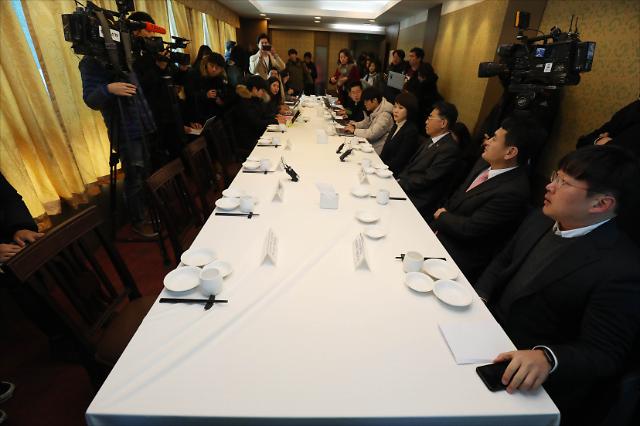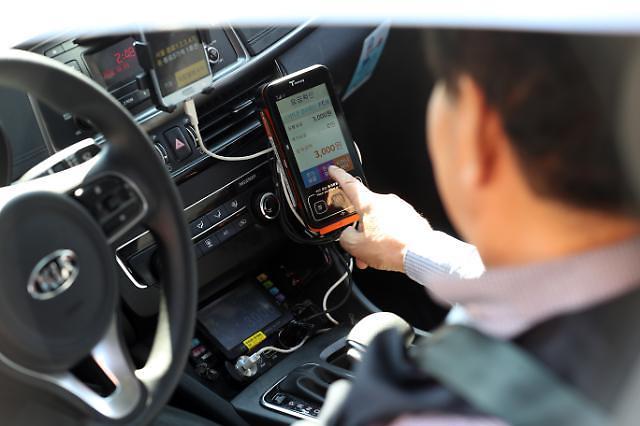
[Yonhap Photo]
SEOUL -- South Korea's top economic official supported the introduction of "sharing economy" as an inevitable choice as tax drivers remained adamant in opposing a carpool service pushed by Kakao, the country's top message-app operator.
Finance Minister Kim Dong-yeon said at a parliamentary inspection Thursday that the sharing economy such as carpool services would create new markets. "It's difficult to shake up existing vested interests," Kim said, adding South Korea should adopt the sharing economy after all.
The sharing economy is an economic model often defined as a peer-to-peer (P2P) based activity of acquiring, providing or sharing access to goods and services that are facilitated by a community based online platform. Collaborative consumption or peer-to-peer-based sharing is a concept that highlights the ability of individuals to rent out something they are not using, such as cars and houses.
"It is necessary to harmonize vested interests with new market entrants," Kim said, citing carpool and house-sharing services.
Airbnb Inc., a San Francisco-based house-sharing platform, has campaigned for a new law so that South Koreans can share their homes with domestic travelers in major cities. Kakao's carpool service triggered strong protests by taxi drivers, but a survey conducted by Realmeter, a Seoul-based pollster, found that a majority of citizens supported Kakao's car-sharing service
Regulatory hurdles and time limits have hampered the growth of homegrown ride-hailing mobile apps that connect non-taxi vehicles with riders. South Korea allows commercial carpool services just during commute hours, but there are growing demands for expanded services to reflect flexible work hours and diverse lifestyle patterns.




